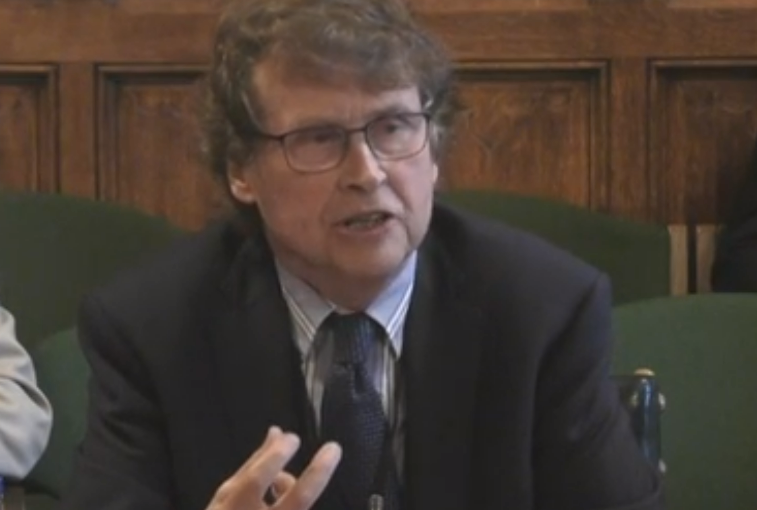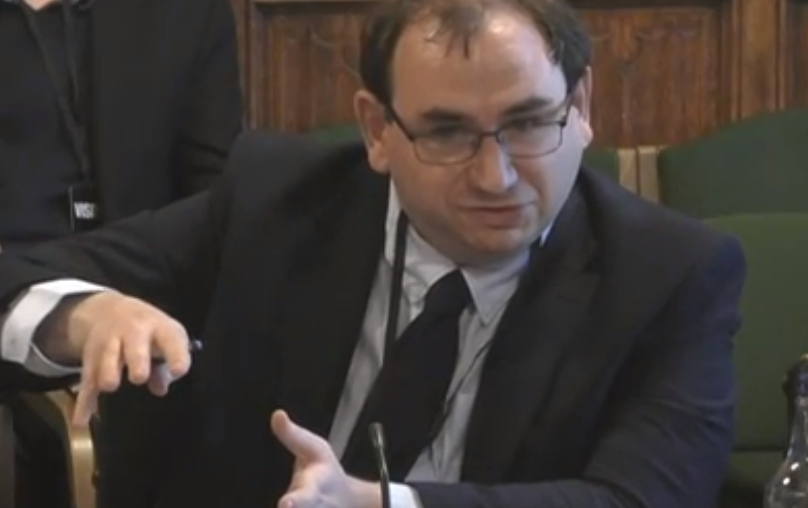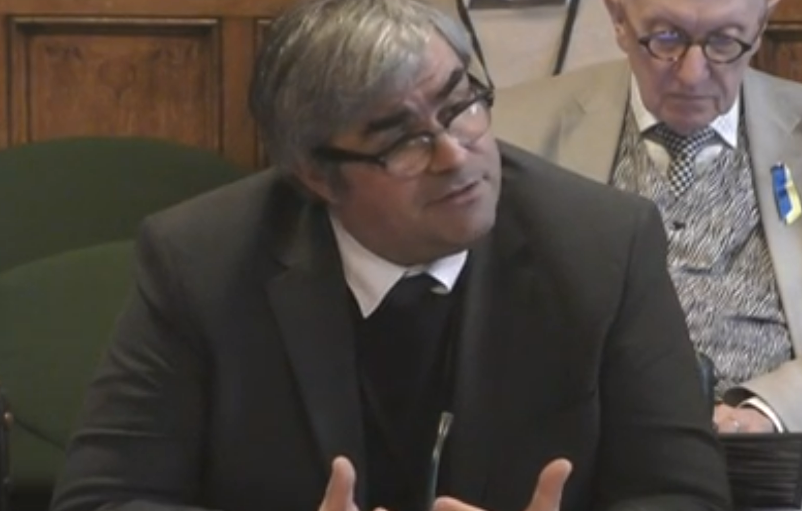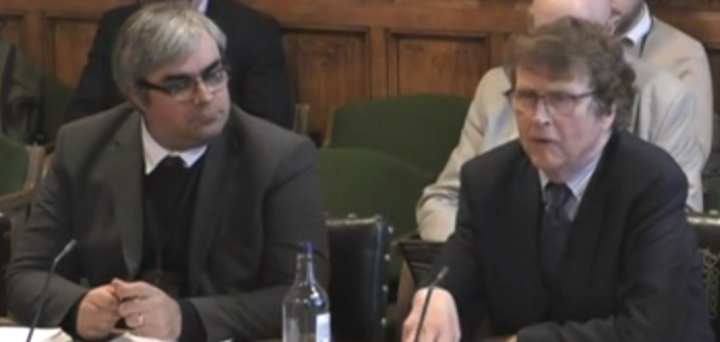Catching up on the backlog of unaudited accounts in local government will “cost a lot of money” and requires paying private audit firms more, the Levelling Up, Housing and Communities (LUHC) Committee has been told.
That was the view of David Heald, emeritus professor at the University of Glasgow, who was speaking during the second panel of the select committee’s first evidence session in its inquiry into financial reporting and audit in local authorities this week (15 May).
Room151’s report on the first panel, which took place on the same day, can be read here.
Heald was answering a question from the committee on what it would take to clear the current backlog. “We need more resources,” he said. “[Local authority auditing] is a relatively marginal activity for the big audit firms. They have to justify their use of resources and it’s not that attractive to them.
“I wouldn’t normally say this, but pay the audit firms more money. If you look at how much audit fees went down in the 2010s, which was claimed as a great success by the Department for Levelling Up, given that and given the withdrawal of resources from the audit sector, to catch up is going to need more resources.”

Heald said that in 2011 he had forecast trouble from the abolition of the Audit Commission and what he called “the obsession with cutting the cost of local audit”. With the abolition of the commission came the removal of an early-warning system that could highlight potential financial problems, and “nobody stepped up to move into that space”. The abolition of the commission also removed key protections for auditing companies. He added: “If you want to outsource you have to make it attractive to private firms.”
Heald also noted that while defunding from central government was a key reason why some local authorities “engaged in risky [investment and other] activities”, the fact that “early warning systems did not bring up [the potential problems with these risky activities] is the crucial point”.
Assurance of value
Dr Henry Midgley, assistant professor in accounting at Durham University, told the select committee that the current nature of financial reporting and auditing made it “difficult to get a sense of local government performance, especially in terms of ‘value for money’”, a point which was also raised in the first panel.
Heald said there had been a “deliberate rolling back” of the value for money part of auditing, and that local authorities “didn’t like value for money judgements”. “Complexity is not causing this crisis, it is the underfunding of private auditing firms,” he stated. “Give them incentives to get into the market and stay in the market.”
He called the downgrading of the value for money part of an audit a “policy mistake”, but said improvements to value for money auditing would largely have to wait until the backlog is cleared. “There is no point in having it when it is an account from several years ago,” he lamented.
However, Heald said those local authorities that have submitted timely financial reports and audits should be encouraged “to demonstrate what can be done with value for money auditing – there is scope for innovation for them”.

Ed Hammond, interim chief executive at the centre for governance and scrutiny, called for the establishment of a local public account committee to act as an intermediate space. “There is a need for some function, carried out by somebody, to exercise more vigour around value for money,” he said, aware of the vagueness of the statement, which highlights the lack of current oversight.
Heald suggested that a local public account committee could also be useful to put together timely comparative data. “There is a need for this data for broadly comparative authorities, of a similar type,” he said, to help with overall scrutiny.
System issues
Another improvement suggested by the panel, which was also noted by Sir Tony Redmond in the preceding panel, was the creation of a summary or digest report in addition to the main financial report that would be accessible to members of the public.
Midgley added to this by suggesting that some of the reporting could be made more digital, and not just presented in PDF format, enabling people to “drill down” if they wish to. “I think that’s something the Department for Levelling Up, Housing & Communities (DLUHC) or somebody else centrally should lead on in terms of spreading best practice on.”
15th Annual LATIF & FDs’ Summit – 19 September 2023
250+ Delegates from Local Government & Investment
Hammond also highlighted systemic issues with the nature of financial reporting and auditing. “Part of the shortfall here lies around a lack of understanding about where local leadership and accountability arises,” he said. “It’s a bit too easy to say there is a collective responsibility. We need to think about who at local level holds distinct individual responsibility for action in this space too. The chair of audit, the chair of scrutiny, the cabinet member for finance, the s151 officer, the head of internal audit – all of these people should have defined responsibilities and duties, clearly articulated, and shared responsibility within that.
“A lot of that is about the work they do to create and bolster a culture and attitude within the authority of accountability and ownership on finance issues, which ensures that everybody within the authority is pulling in the right direction.
“There is a risk in talking about this issue that we look at audit as being in a separate box on its own, and the duty of assuring financial security rests with the external auditor and the s151 almost exclusively. There are many others who have specific individual responsibilities and I think we should do more to articulate that.
“There is a clear councillor responsibility in this space too. I think there is a need for councillors to develop significant additional skill and acuity in understanding finances and the accounts, and also the inter-relationship between risk, finance and performance and how this impacts on the council’s ongoing financial position. Ultimately it is members who set the risk appetite of the authority, and that can only be set based on an understanding of the financial challenges and pressures the authority faces.”

An English problem
The “crisis in local audit”, as Heald put it, is an English problem, and “there is nothing like a crisis in Scotland, Wales and Northern Ireland”, although that is “not to say there aren’t problems in those jurisdictions”.
So why is there a crisis in English local authority and not elsewhere? “I would give three explanations for that,” stated Heald. “The first point is that Audit Scotland, using Scotland as an example, continues to organise the audit using a mixture of in-house auditors and private sector auditors. There was never the disruption caused in the early 2000s by the abolition of the Audit Commission or of district audit. The interaction between local authorities and the auditors has been maintained.
“The second point is that England is a big country. Scotland has got 32 local authorities. It is possible for people at the centre of government in Scotland to have a pretty good idea which local authorities are financially capable and where the problems are. With more than 300 local authorities in England, it’s very difficult.
“English local authorities also started taking far more risks in terms of commercial investments, town centre redevelopments, and so on, than happened in Scotland, and that partly reflects the tighter supervision. The supervision role has not been lost in Scotland, Wales and Northern Ireland.”
In concluding the session, committee chair Clive Betts thanked the panellists for coming, stating that they had “thrown up a lot of issues for us to give consideration to, and hopefully there will be some suggestions that we might make that are very clearly necessary to the whole system”.
Click here to read Room151’s report on the first panel to be questioned by the Levelling Up, Housing and Communities Committee, which featured Sir Tony Redmond, author of the Redmond Review; Neil Harris, director of local audit at the Financial Reporting Council (FRC); and Sarah Rapson, deputy CEO, executive director of Supervision, and future chair of the Liaison Committee at the FRC.
—————
FREE weekly newsletters
Subscribe to Room151 Newsletters
Follow us on LinkedIn
Follow us here
Monthly Online Treasury Briefing
Sign up here with a .gov.uk email address
Room151 Webinars
Visit the Room151 channel












